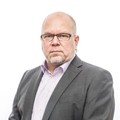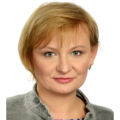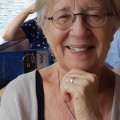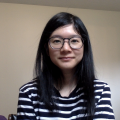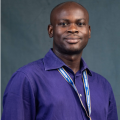Ageing societies face the challenge of creating more inclusive labour markets. Therefore, European and national policies aim to extend working life by investing in employability, changing legal frameworks, promoting innovative life course policies and stimulating lifelong learning processes. With company and branch policies partly still holding opposing views, promoting early exits and continuing ageist training and recruitment practices, there is a risk for increased exclusion and new inequalities connected to these shifts, as prolonged work might not be equally achievable and beneficial for all workers.
This symposium presents research from the research programme ‘EIWO – Exclusion and Inequality in Late Working Life' (www.eiwoproject.org), funded by the Swedish Research Council for Health, Working Life and Welfare (dnr 2019-01245). It compiles comparative multi-level research on Sweden, Poland, Germany and the UK from various perspectives. Papers contribute to ongoing policy debates on late work in ageing societies by addressing chances and limits of the equal and inclusive prolongation of working lives. The role of individual exclusion experiences, life courses, company structures and national policies are at the core of the analyses.
Andreas Motel-Klingebiel (Linköping University, Sweden) - "The Prolongation of Working Lives, Social Change and the Demographic, Green and Digital Transition in Europe"
Gerd Naegele (Institute for Gerontology, TU Dortmund University, Germany) & Andreas Motel-Klingebiel (Linköping University, Sweden) - "Exclusion and inequality in late working life in the political context of the EU"
Gülin Öylü, Susanne Kelfve & Andreas Motel-Klingebiel (Linköping University, Sweden) - "Social Inequality of Participation and Risks for Exclusion from Swedish Late Working Life"
Rachel Crossdale, Liam Foster & Alan Walker (University of Sheffield, United Kingdom) - "Towards an Extending Working Lives Policy Agenda: Lessons from a Four-country Comparison of Exclusion and Inequality in Late Working Life"
Wiebke Schmitz (University of Vechta, Germany) - "Work Quality Trajectories in Late Working Life"
Nehle Penning & Monika Reichert (TU Dortmund University, Germany) - "Gender Differences in the Reconciliation of Work and Family Life"
Extending working lives (EWL) is an important issue for many ageing societies. In order to understand the integration of older persons into the labour force, it is important to examine the potential risks of exclusion in late working life. The reconciliation of work and family life is one of these risks. Therefore, it is of interest to examine how older workers perceive and manage the reconciliation over their life course.
The analysis – we used thematic content analysis (Kuckartz, 2018) – is based on 100 problem-centred interviews (with topics such as the work history) that were conducted in Germany, Sweden, Poland and the UK (25 interviews in each country). The sample consists of women and men, aged 55 and older, who are either working, unemployed or working in retirement.
Corresponding with the institutional framework, the country-specific samples report different challenges concerning reconciling family and work. However, particularly noticeable are gender differences, which could be identified across the four countries. These differences refer to gender-specific coping strategies to deal with family events that influence employment – such as the takeover of direct care mainly by women, whereas men see their responsibility more in financial terms.
In sum, our analysis of various employment biographies show how external framework conditions can help or hinder the workforce in overcoming family related challenges in working life. Furthermore, traditional role models still play a major role in this connection. This information can be used to address the question how to reduce gender-specific inequalities and exclusion in late working life.
Jolanta Perek-Białas, Maria Varlamova, Anna Urbaniak, Katarzyna Saczuk & Natalia Krygowska-Nowak (Jagiellonian University Krakow, Poland) - "Levers of Extending Working Life in Poland - The Policy Framework and Age-management Practices "







